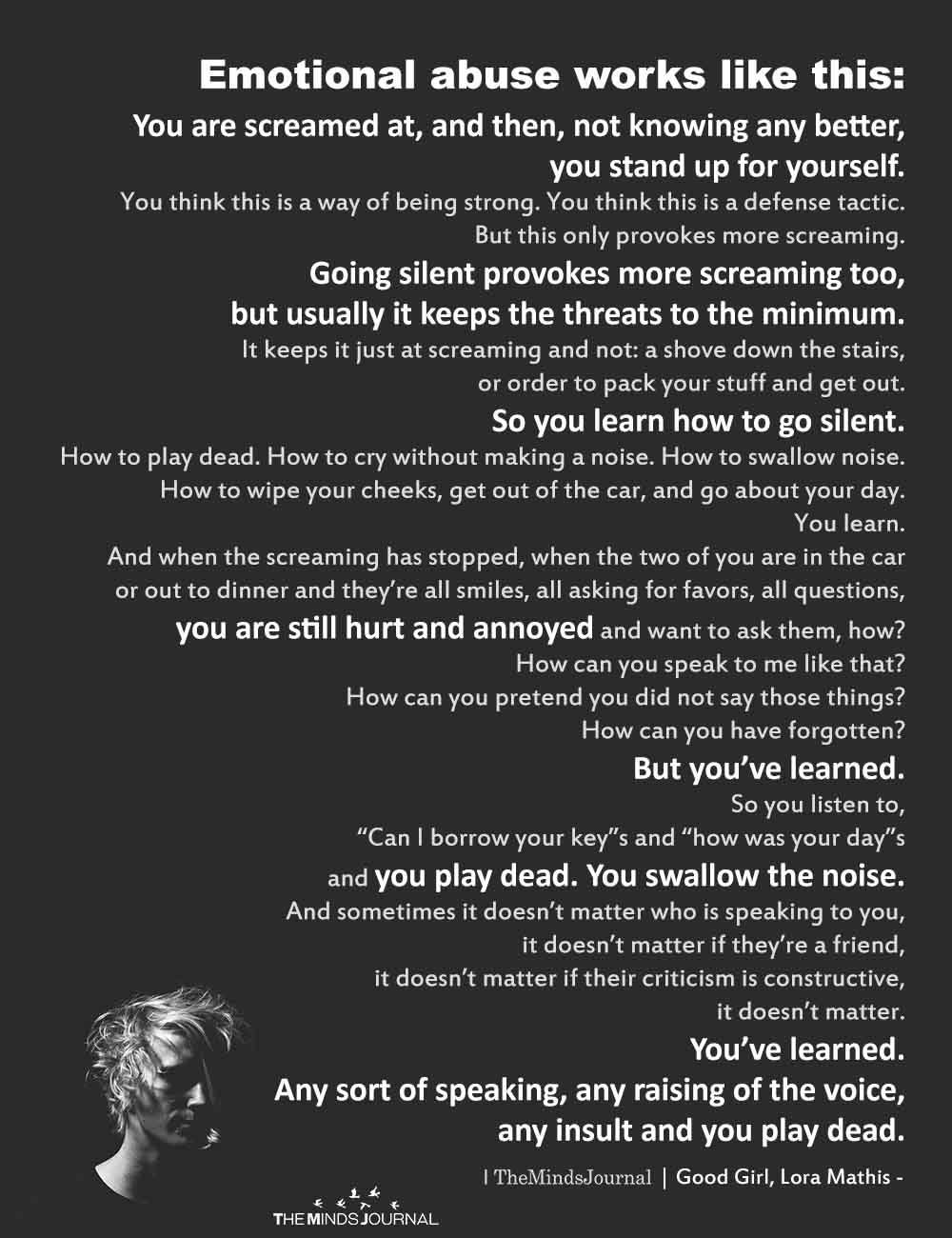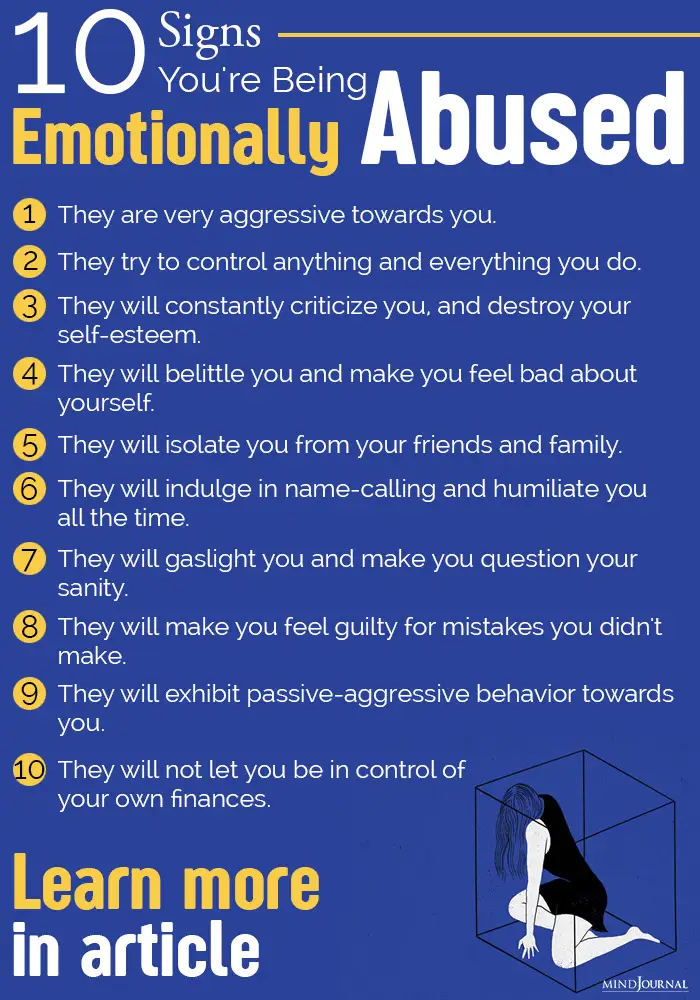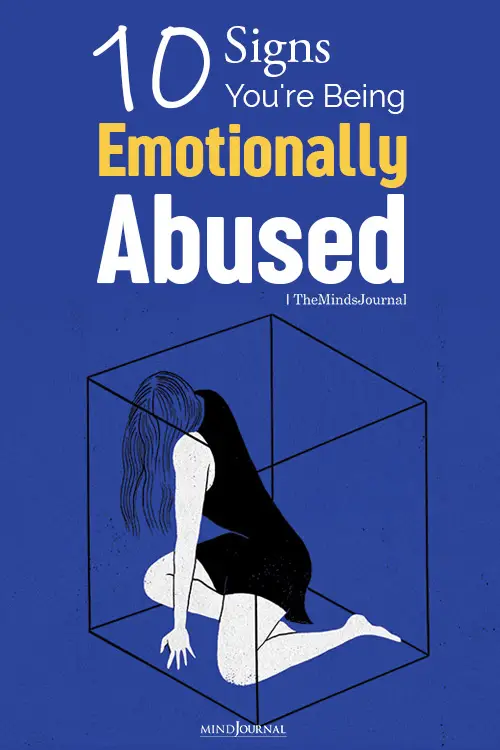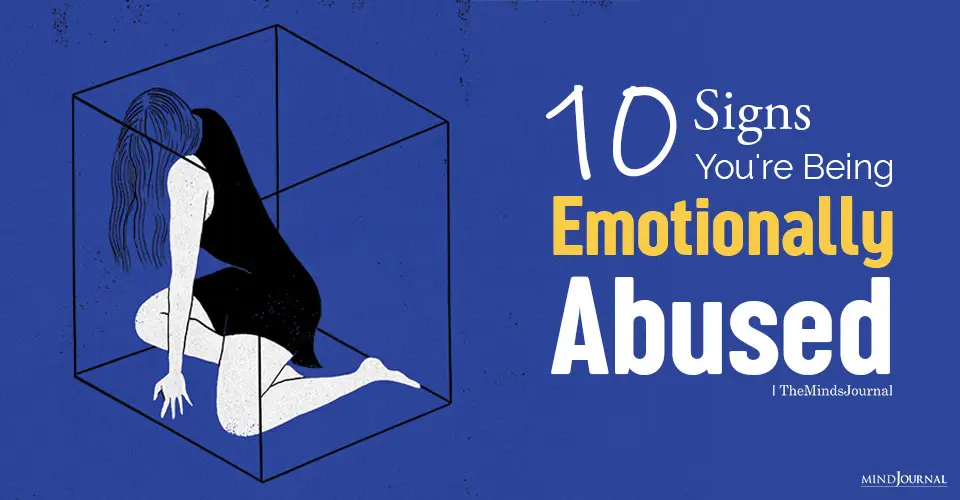Emotional abuse can happen in any and all types of relationships. And the worst thing about it is that it rarely leaves any physical scars. Yet you end up feeling wounded, broken, and insulted. Hence, it is important for you to understand what abuse is and identify if you are in an abusive relationship or not.
Emotional abuse may be referred to as psychological violence or mental abuse, which involves subjecting someone to behavior that may result in psychological distress or trauma such as chronic depression, stress, anxiety, and post-traumatic stress disorder. Emotional abuse can be just as devastating as physical abuse, sometimes even more so. How do you know if you are being emotionally abused?
The answer is in the way a person makes you feel as a result of their behavior. If someone controls your life, puts you down, and creates feelings of low self-worth, you are being abused. If someone is stopping you from being yourself, expressing yourself, or isolating you from your friends and family, you are being emotionally abused.

Examples Of Emotional Abuse Include:

1. Aggressive behavior towards you.
2. Controlling behavior, such as telling you what is best for you, not being allowed to have your own opinions, being told what to do, how to spend your time, who to associate with, what to wear, etc.
3. Criticism. (Justified criticism is healthy but constant criticism will destroy anyone’s self-esteem.)
4. Being belittled and made to feel bad about yourself.
5. Isolating you from friends and family. (Once isolated, you become easier to control with no one to turn to but the abuser.)
6. Name-calling.
Related: 7 Things That Look Like Love But Are Actually Emotional Abuse
7. Gaslighting. (Sometimes described as ‘psychological warfare’ gaslighting is an insidious process of mind games that occur over a period of time resulting in the person being gaslighted questioning their own sanity and/or reality unable to trust their own judgment.)
8. Being made to feel guilty for mistakes you didn’t make.
9. Passive-aggressive behavior (being subjected to the silent treatment for some perceived slight).
10. Financial abuse such as not being in control of your own finances. Denying access to finances will restrict your freedom and independence.
The aim of an emotional abuser is to gradually chip away at your self-esteem and independence so that, in time, you become a shell of your former self. Eventually, you may feel trapped with no way out of the relationship. You may feel that you can’t manage without this abusive person in your life. You can, and you will with the correct help and support.
Written by
Anne McCrea
Written by Anne McCrea Originally appeared in Narcissistic and Emotional Abuse
Frequently Asked Questions
How do I deal with my mentally abusive parents?
Express yourself in a calm yet firm manner. Do not expect validation from them, but seek professional support or talk to a trusted friend or family member. Spend as less time with your parents as possible and be emotionally independent.
How do I help a friend who has abusive parents?
Listen intently when they share their troubles with you. Don’t make them feel guilty or try to defend their abusive parents. Express your concern and offer specific solutions. Encourage them to seek professional help. Help them come up with a safety plan.
How can parenting classes help abusive parents?
Parenting classes sensitize parents about the emotional and physical well-being of their children through parenting behavioral education. Various communication styles for different situations help foster healthy and positive parent-child relationships.
How do I get away from my mentally abusive parents?
Identify the patterns and stay calm when the abuse is happening. Express how their behavior is affecting you and set firm boundaries. Remain aloof and don’t react. Lean on your support system and spend less time with your parents. Talk to a professional for guidance.









Leave a Reply
You must be logged in to post a comment.